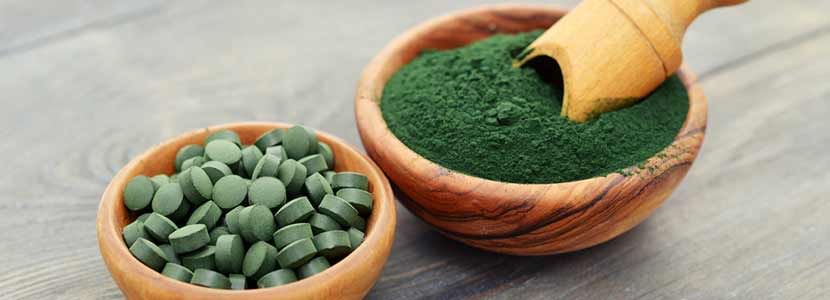What is Spirulina? How is it consumed?
Spirulina
What is Spirulina, which has recently come to the fore with labels such as ‘superfood’ or ‘miracle from the sea’, what are its nutritional benefits and potential side effects, and is it safe for everyone? Let’s take a look at this food supplement…
What is Spirulina? How is it consumed?
Spirulina is a blue-green algae that is usually consumed in powder form or as a supplement. So, contrary to popular belief, Spirulina, which is not a plant species, can be defined as algae. Spirulina, a type of cyanobacteria, is actually a type of bacteria that creates algae on the soles of glass materials. Spirulina is widely used not only as a nutritional supplement, but also as a food coloring in chewing gum, candy and packaged products. However, Spirulina, which is used as a food supplement, is not grown in nature, but specially grown in order not to be contaminated with substances that may be harmful to health.

Why Spirulina?
Spirulina is known as a nutrient-dense food as it is packed with vitamins A, C, E and B vitamins and many minerals including calcium, magnesium, zinc and selenium.
In particular, vitamin C and selenium are both antioxidant vitamins and protect our cells and tissues from potential damage.
This algae is also excellent
It is a vegan source of iron and provides approximately 16% of the recommended daily requirement for children under 5 years of age, 16% for women over 50, and 10% for women under 50. Spirulina is also very high in protein, providing about 3 g of protein per serving with just 1 teaspoon (5 g).
Who Can Use Spirulina?
Although Spirulina is known as a miracle product, experts should definitely listen to it. How and at what dosage food supplements are used is very important. On the other hand, it should not be forgotten that research continues and no findings will be final. Spirulina, no matter how natural; It should not be ignored that it can cause any health problems as a result of using the wrong purpose and dosage. If we look at who can use Spirulina;
People with heart problems
Those who have complaints about metabolism, those who want to accelerate their metabolism and lose weight,
Have a high cholesterol problem; Those who want to lower their cholesterol
Those who experience some mental and emotional problems such as anxiety, stress, depression, attention deficit, hyperactivity,
Those who want to relieve their premenstrual symptoms,
Those who want to strengthen the immune system,
Those who complain of poor memory,
Those who want to heal wounds quickly,
Having digestive problems; Those who want to facilitate digestion and regulate their intestines,
Type 1 diabetes patients
Those who want to strengthen muscle strength and exercise performance,
They can resort to Spirulina supplementation.
Are There Any Side Effects of Spirulina?
Spirulina contains salt. One teaspoon contains 0.13g of sodium, which is 2% of the recommended daily intake for adults. If salt consumption is a problem for you, or if you have high blood pressure, you should definitely use it after consulting a specialist. The group that should get expert opinion before using Spirulina includes prescription drug users, pregnant women, nursing mothers and those under 18 years of age.




